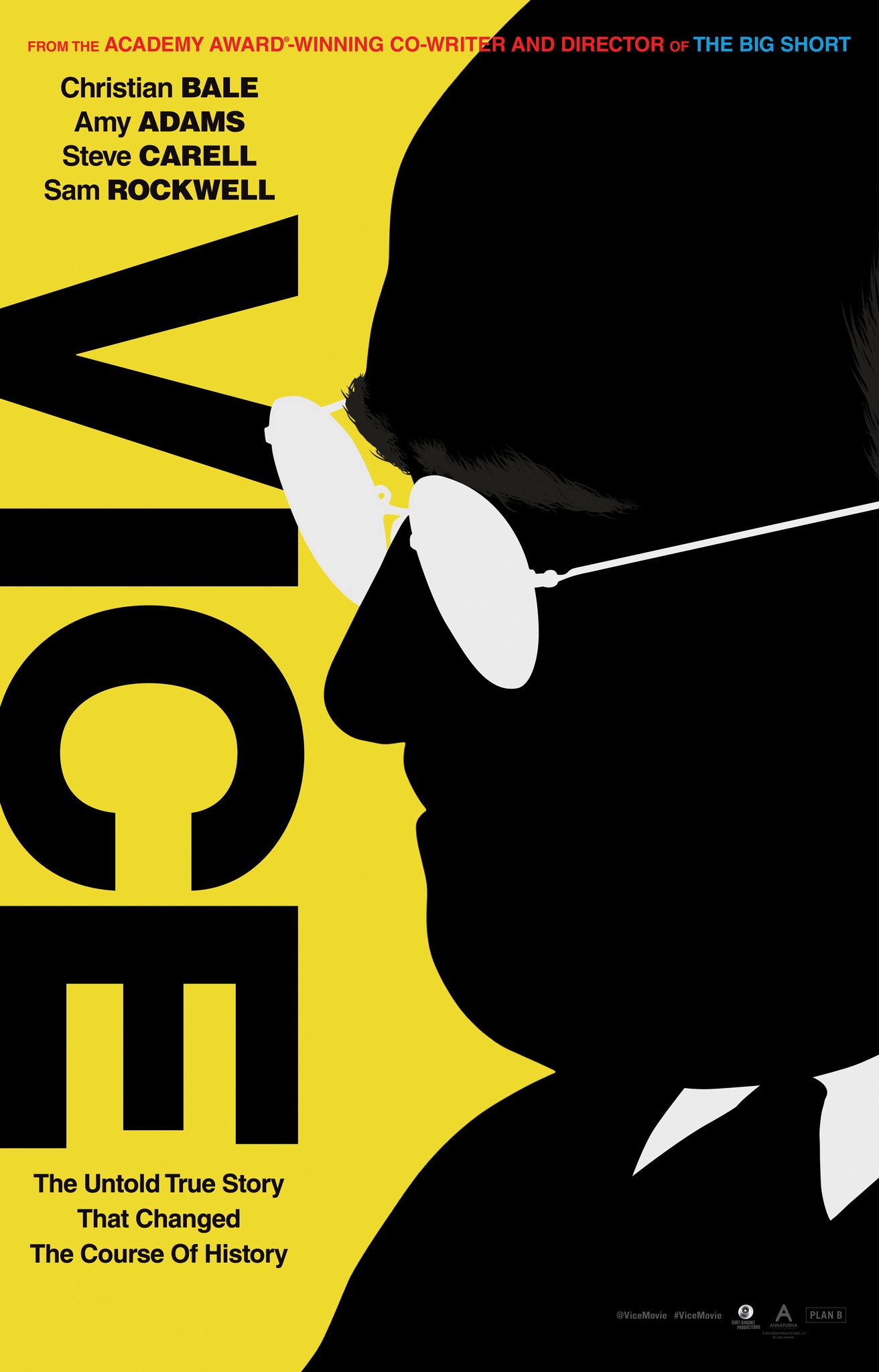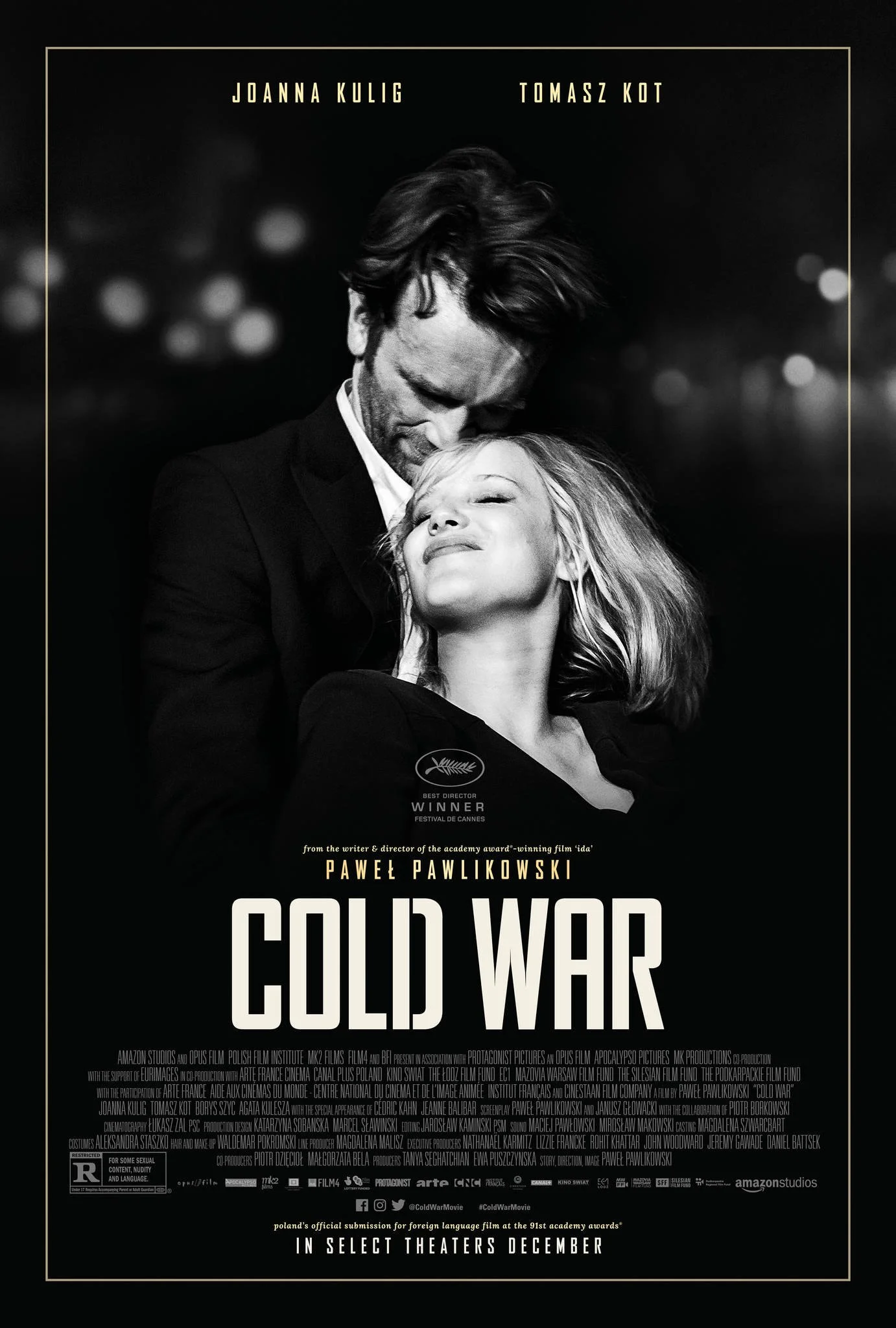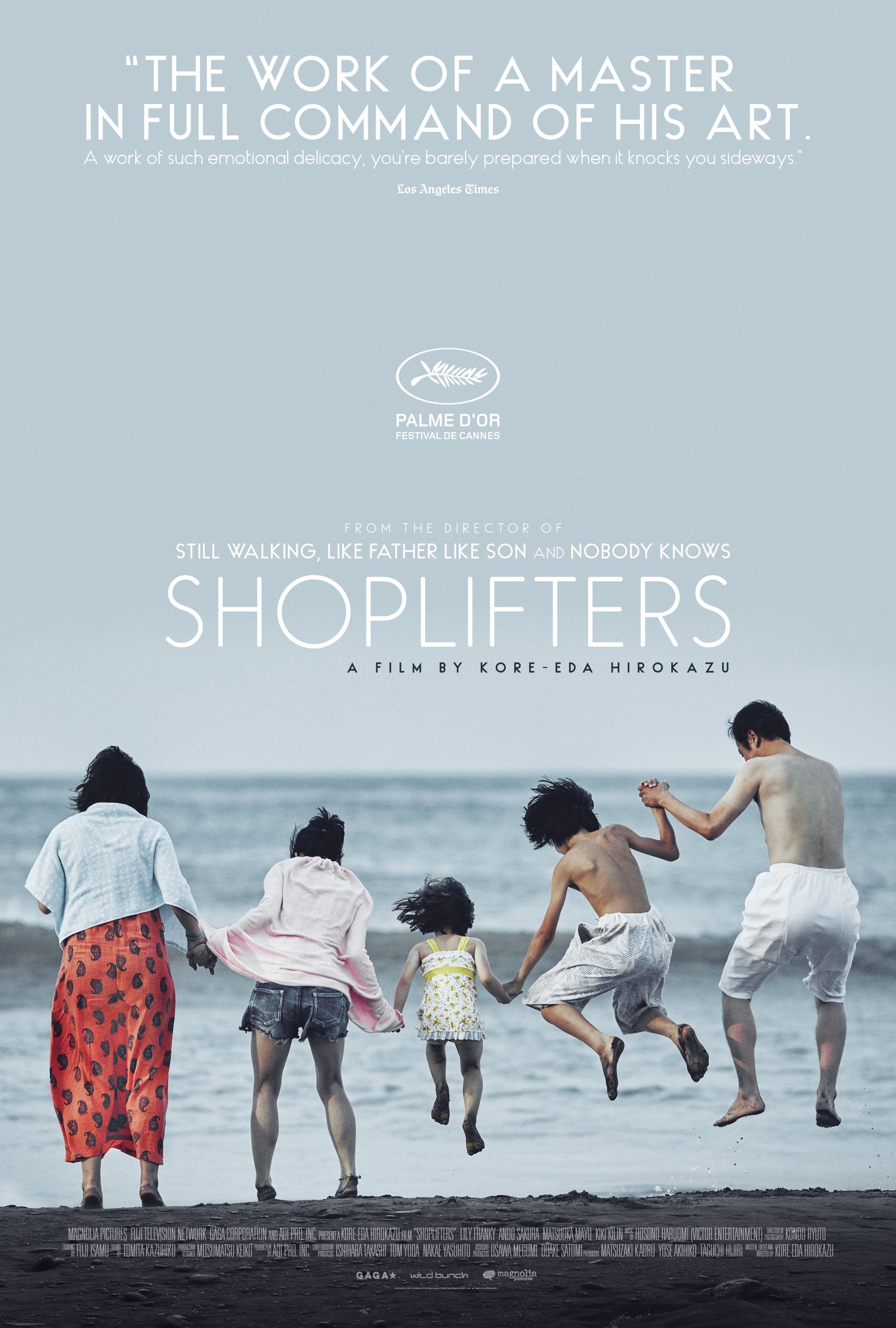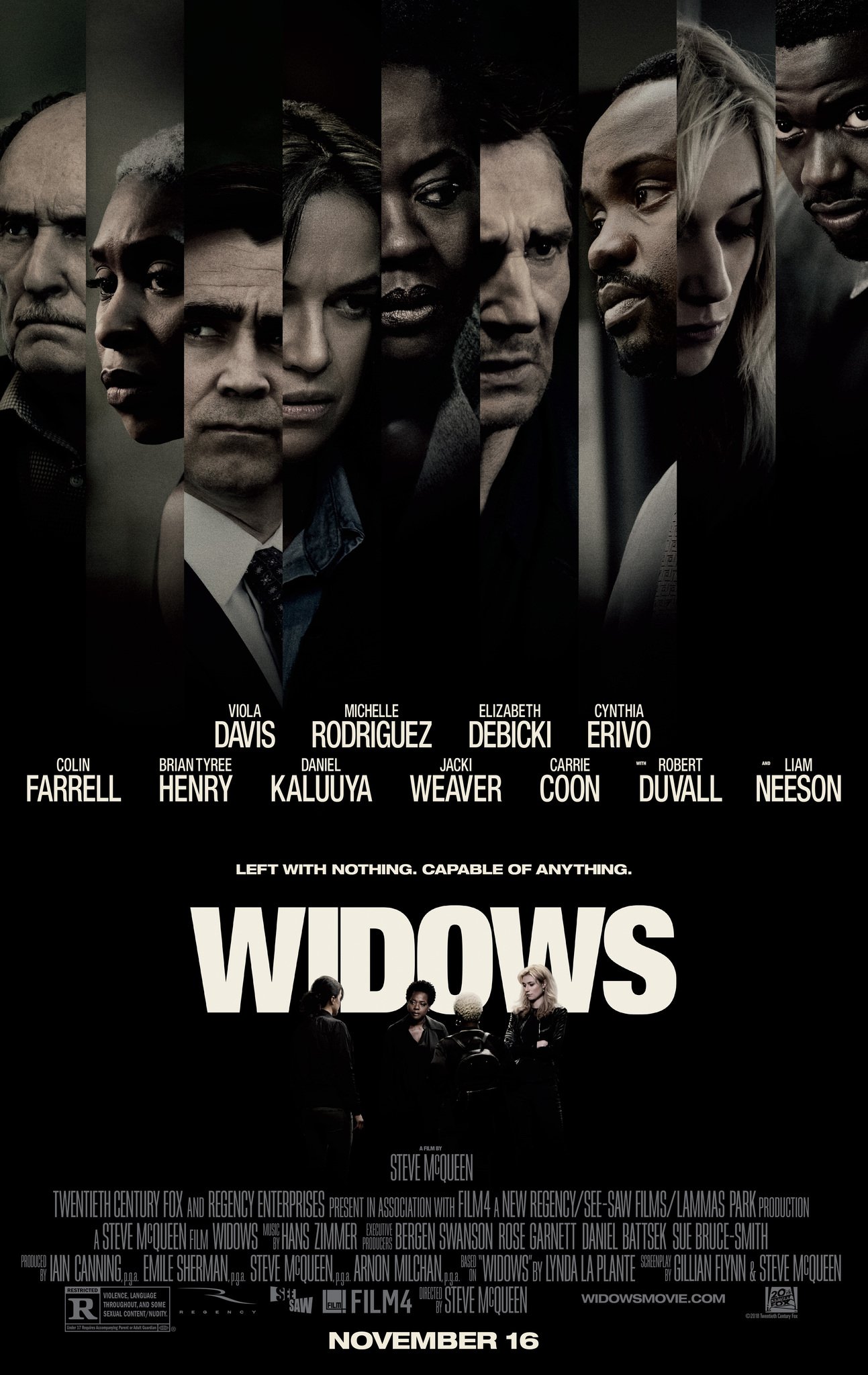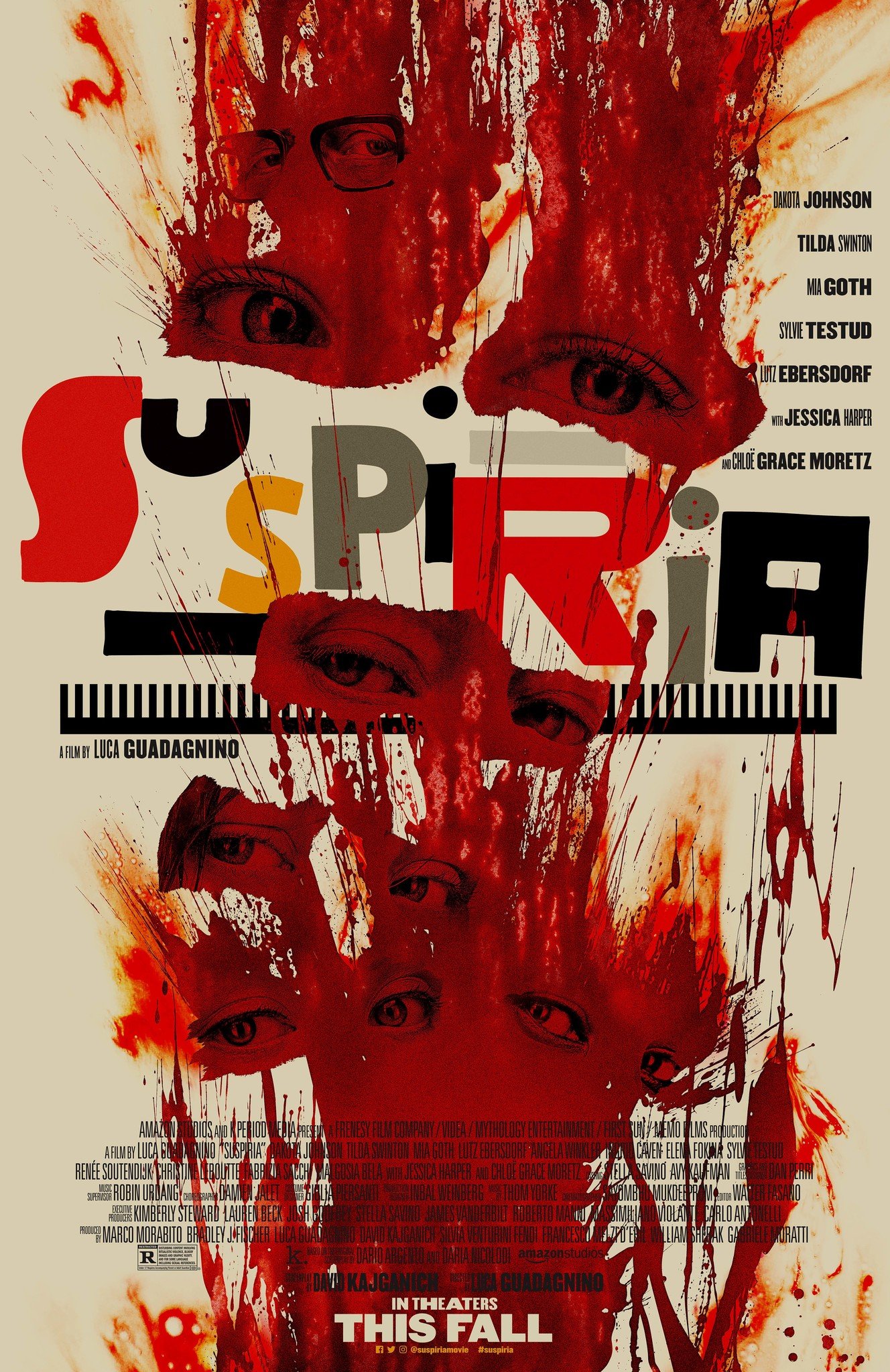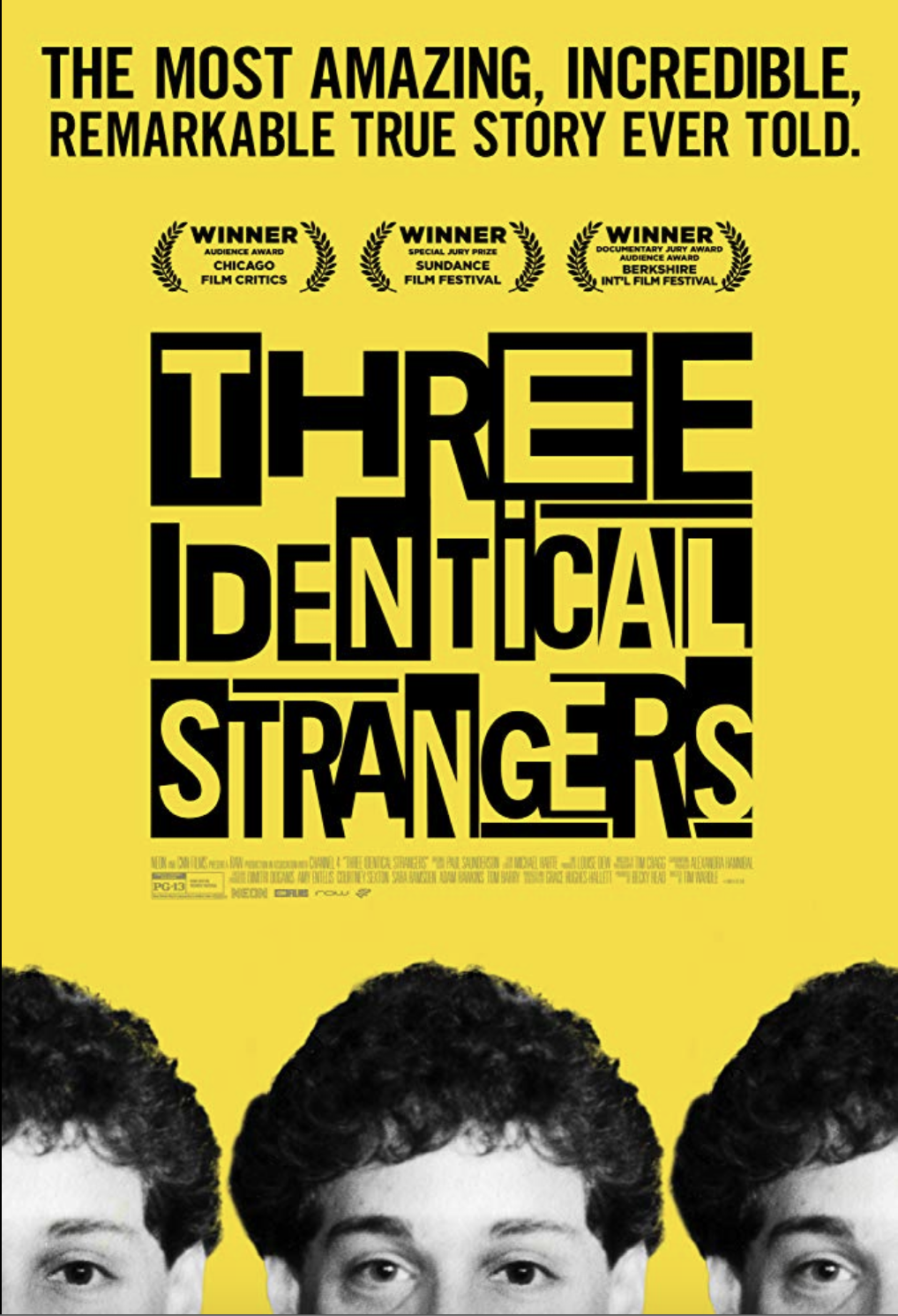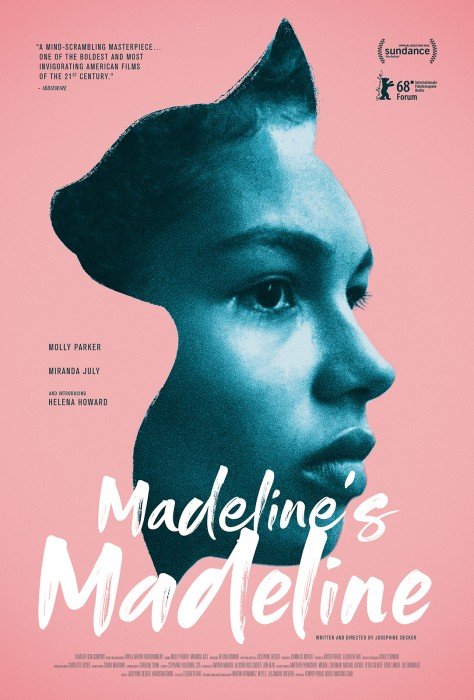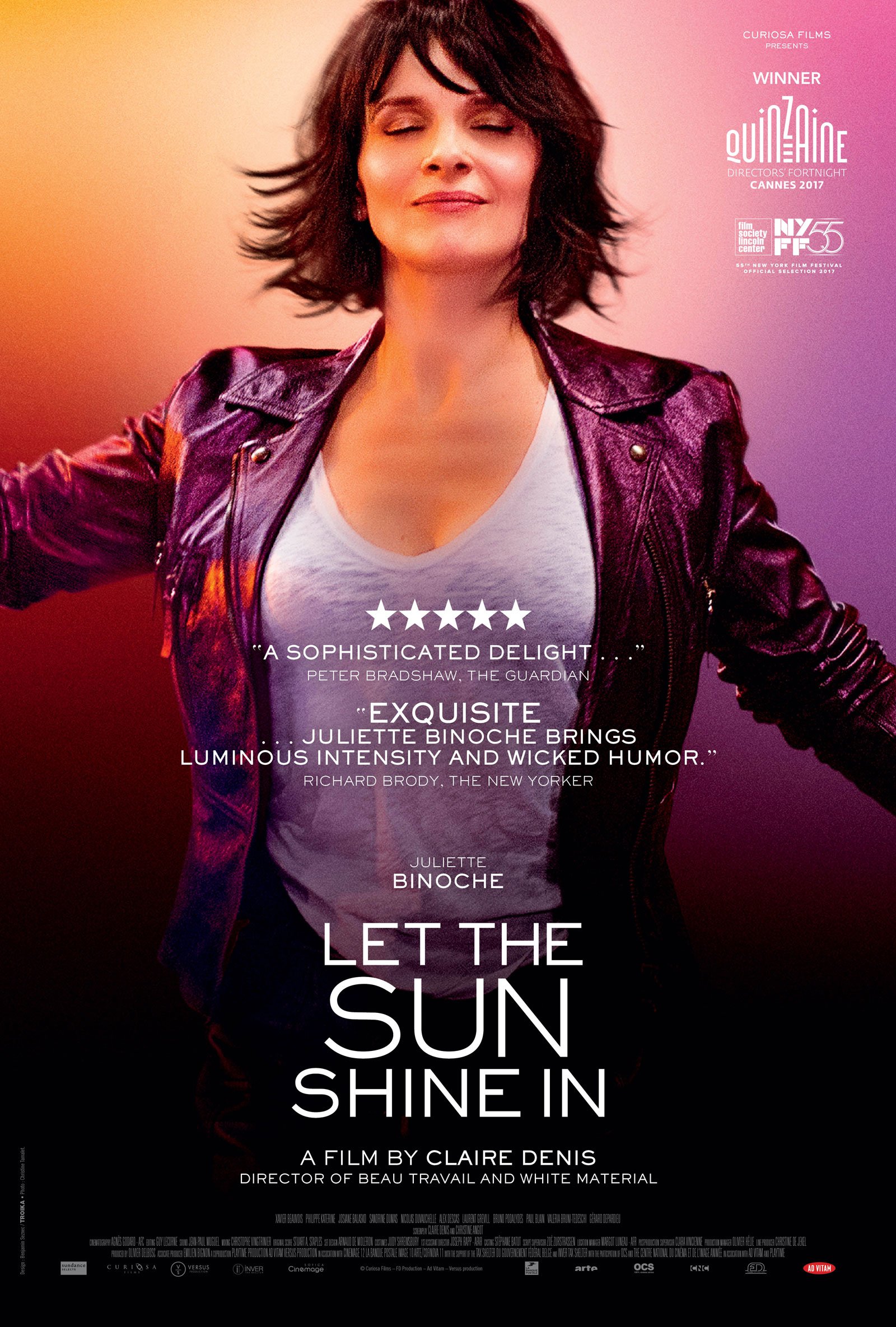These are some of the highlights from the Brock University Film Society’s 2018-2019 season.
———
Our BUFS 2018-2019 season truly has been fantastic. We got the opportunity to screen many, many outstanding films, and they played to impressive crowds, including quite a few sold-out shows, and a number of other near sell-outs (like last night's screening of "Vice"). We thank you for your incredible support during this transitional year.
We would also like to thank the Department of Communication, Popular Culture and Film and the Faculty of Social Sciences at Brock University for their continued backing, as well as their moral support.
Thank you to Stephen Remus, Barry Grant, Joan Nicks and the rest of the Film House's board for inviting us to join forces with them. It really has been a pleasure!
Thank you, too, to the staff of the Film House and the Performing Arts Centre for being so friendly and accommodating. And a special shout-out to Ernest Harris, Jr., who was a steady hand in the projection booth throughout the year.
But, once again, we'd especially like to thank YOU, our BUFS members and supporters. You've been amazing all year long. I said it last night, and I'll say it again: It's wonderful to see that quality cinema and cinephilia are alive and well right in the heart of St. Catharines.
We look forward to seeing you again in September, when our 2019-2020 season begins.
And keep in mind that the Film House's outstanding programming continues on unabated this spring and summer, as it always does.
Bon cinéma!
March 28, 2019—Vice (2018), dir. Adam McKay
Adam McKay first achieved fame as a particularly talented writer for Saturday Night Live in the 1990s, eventually becoming Head Writer between 1999-2001, at a time when the show starred the comic talents of people like Tina Fey, Jimmy Fallon, and Will Ferrell.
McKay transitioned to directing after leaving SNL, and his first five films were all Will Ferrell vehicles—Anchorman: The Legend of Ron Burgundy, Talladega Nights: The Ballad of Ricky Bobby, Step Brothers, The Other Guys, and Anchorman 2: The Legend Continues—a number of which McKay had co-written together with his good friend Ferrell. I think it’s safe to say that critics and filmgoers thought they had McKay pegged.
But then The Big Short came along in 2015, and everything we thought we knew about McKay got thrown out the window. Based on Michael Lewis’s best-selling book on the 2008 financial crisis, McKay displayed an unprecedented degree of range and depth, tackling a complex topic with wit and aplomb, and harnessing the talents of a star-studded cast—Christian Bale, Steve Carrell, Ryan Gosling, Brad Pitt, Melissa Leo, and others—in order to do so.
Vice, McKay’s latest film, is another clever and penetrating black comedy, this time about Dick Cheney’s rise to power, and especially about his pivotal role as Vice President in the administration of George W. Bush. Christian Bale is masterful and virtually unrecognizable as Cheney (which is to say his delivery, his mannerisms, and his appearance are completely uncanny) and McKay has once again assembled a star-studded cast—including Amy Adams as Lynne Cheney, Steve Carrell as Donald Rumsfeld, and Sam Rockwell as W.—to tell “the untold true story that changed the course of history.”
March 21, 2019—If Beale Street Could Talk (2018), dir. Barry Jenkins
In 2016, Raoul Peck’s documentary I Am Not Your Negro took the words from an unfinished memoir by James Baldwin, the great African-American writer and critic, and transformed them into a scathing treatise on race and social and economic injustice in America.
Late last year, the release of Barry Jenkins’s If Beale Street Could Talk marked the very first time a fictional work by Baldwin appeared on screen, as shocking as that might seem. Somehow, the celebrated author of Go Tell It on the Mountain (1953), Giovanni’s Room (1956), Another Country (1962), and numerous other acclaimed novels and plays, had never seen his stories adapted into films. At least, when if finally did happen, Baldwin had found himself an artistic soulmate of sorts, a director ideally suited to the task.
Jenkins, of course, first gained mainstream attention with his gorgeous, tender, and devastating film Moonlight, which beat out La La Land to win Best Motion Picture at the 2017 Academy Awards, and picked up two more Oscars that same night. If Beale Street Could Talk is a fitting follow-up, and it earned Regina King a much-deserved Oscar for Best Actress in a Supporting Role. Set in Harlem in the 1970s, Beale Street is a truly exquisite period piece, one that resonates powerfully in the era of Black Lives Matter. I’m sure he would have wished otherwise, but once again, James Baldwin’s trenchant, yet lyrical prose has proven to be prophetic.
March 7, 2019—Cold War (2018), dir. Pawel Pawlikowski
Along with directors like Claire Denis, Luca Guadagnino, and Hirokazu Kore-eda—all of whom we’ve had the honour of featuring at BUFS this year—Pawel Pawlikowski is one of the leading lights of contemporary World Cinema, and Cold War is his first film in five years. Ida (2013), Pawlikowski’s last film, stunned audiences around the globe with its highly economical (it clocked in at a mere 82 minutes in length), yet immensely powerful tale of politics, religion, and personal history, of long-buried secrets and difficult choices, in Communist Poland of the 1960s. The film received widespread acclaim and Ida eventually won the Academy Award for Best Foreign Language Film, the very first Polish film to do so.
Though it, too, features a compact narrative (running time: 85 minutes!), Cold War is a much more sweeping affair than its predecessor. It covers three decades in the lives of its star-crossed protagonists—from the 1940s to the 1960s—and presents its audiences with a poignant parable of Poland in the early Cold War-era that is at once epic, romantic, and tragic, as well as visually breathtaking. Cold War won Pawlikowski the award for Best Director at the 2018 Cannes Film Festival, and the film was nominated in three categories at the 2019 Academy Awards: Best Foreign Language Film, Best Cinematography, and Best Director.
February 21, 2019—Shoplifters (2018), dir. Hirokazu Kore-eda
Hirokazu Kore-eda rose to prominence as a leading Japanese director in the mid-1990s, from the moment Maborosi (1995), his first feature film, won the award for Best Director at the 1995 Venice Film Festival. However, Kore-eda has been on a tear for the last decade or so, becoming one of the world’s top directors in the process. Still Walking (2008), a study of love, ritual, and remembrance among the Yokoyama family, was a critical sensation and reaffirmed Kore-eda’s status as an heir to Yasujiro Ozu, one of the legend’s of Japanese cinema and a master of the understated family melodrama. His 2013 film Like Father, Like Son examined the very nature of family in the wake of “switched at birth” discovery, and it won the Jury Prize at the Cannes Film Festival. And Shoplifters (2018), Kore-eda’s most recent film, succeeded in winning the Palme d’Or, the top prize, at Cannes last year.
That was really just the beginning of the critical acclaim for Shoplifters. This film, too, is an examination of the nature of family—here, in relation to issues of adoption—and it has met with virtually unanimous approval around the world, and is a strong contender for the Best Foreign Language Film award at this year’s Oscars.
Finally, Kore-eda is most often compared to his compatriot Ozu, but in a 2015 interview with The Guardian, he revealed a particular affection for the work of Ken Loach, the great British social realist. That influence is very much on display in Shoplifters, which combines Kore-eda’s ongoing interest in family with a powerful study of class.
February 14, 2019—Widows (2018), dir. Steve McQueen
This year we have a rather unusual Valentine’s Day film on offer. In fact, this might be the Valentine’s Day film for all those who are looking to escape Valentine’s Day, block it out, or, perhaps, reinterpret it.
Widows is the latest film from the gifted British director Steve McQueen (not to be confused with the other Steve McQueen, the talented, and long-deceased American actor). McQueen began his career in the art world, as a film & video artist who specialized in striking installation projects, before making the transition to celebrated feature film director in the early 2000s on the back of the acclaimed films Hunger (2008) and Shame (2011). His last outing, of course, was 12 Years A Slave (2013), a critical and box office sensation that also happened to win the Golden Globe for Best Motion Picture—Drama and the Oscar for Best Picture. This time around the principal setting is modern-day Chicago, not antebellum Louisiana, and the genre is the heist film, not the slave memoir. And although the film features an all-star cast that includes a number of leading male actors (Colin Farrell, Daniel Kaluuya, Robert Duvall, and Liam Neeson among them), as its title suggests, its focus is on three determined women (played by Michelle Rodriguez, Elizabeth Debicki, and Viola Davis) who decide to band together to pull off a big score in the wake of their sudden and unexpected widowhood. In fact, what McQueen seems to have done is to have taken the heist film and turned it on its ear, transforming it into a fascinating study of gender, race, and big city politics in contemporary America. Based on a screenplay by McQueen and Gillian Flynn, the best-selling author of Gone Girl.
January 31, 2019—Destroyer (2018), dir. Karyn Kusama
Though her career actually stretches all the way back to a number of memorable teen roles in Australian film in the early to mid-1980s (BMX Bandits, anyone?), Nicole Kidman has been in the international limelight for 30 years now, ever since her breakout performance in the Australian psychological thriller Dead Calm (1989). From there, Kidman quickly became one of the most acclaimed actors of our time, tackling a wide variety of different film roles and displaying remarkable range. Not only has Kidman been outstanding as the lead in films as distinct as To Die For, The Others, Moulin Rouge!, Dogville, and The Hours (which earned her an Oscar for Best Actress in a Leading Role), but she’s also frequently been impressive in supporting roles (think Cold Mountain, The Killing of a Sacred Deer, and Boy Erased), and has successfully crossed over to both the stage and to the television screen (Big Little Lies).
Just when you thought you’d seen as much range as was conceivable from Kidman, now comes Karyn Kusama’s unflinching crime drama Destroyer. This is probably Kidman’s toughest, least glamorous, and most visceral role yet. As LAPD detective Erin Bell, Kidman has surprised and astounded critics yet again (Peter Debruge of Variety put it this way: “Nothing Nicole Kidman has done in her career can prepare you for Destroyer”), and the role has earned her yet another Golden Globe nomination—her twelfth! Kusama has been a veteran of the American indie scene since the release of Girlfight in 2000, and now, together with Kidman, she’s made a powerful film about crime and punishment, violence and gender, and the perils of going undercover.
January 24, 2019—Suspiria (2018), dir. Luca Guadagnino
Italy’s Luca Guadagnino has been one of the most celebrated directors of the last decade, ever since the release of I Am Love (2009) introduced audiences to his talent for lush, intoxicating mise-en-scène, stirring romance, and contemporary melodrama, as well as to his special relationship with Tilda Swinton, the film’s star. (He’d already made a documentary about the great British actor.) The success of I Am Love ending up spawning two more similarly stylish and heart-wrenching films, completing a trio which Guadagnino eventually began to refer to as his “Desire trilogy.” The second instalment was A Bigger Splash, based loosely on Jacques Deray’s steamy ‘60s classic La Piscine (The Swimming Pool), and once again it starred Tilda Swinton, this time together with Dakota Johnson. 2017’s Call Me By Your Name, the final film in the trilogy, made the biggest splash of all, receiving widespread acclaim and accolades and vaulting Guadagnino into the top tier of international filmmakers. A sequel to Call Me By Your Name is apparently in the works, so it looks as though the “Desire trilogy” is in the process of becoming a quartet, but until then, Guadagnino has many, many projects on the go, and his latest is a bold, new experiment with genre that caught many by surprise.
In 1977, Dario Argento, the legendary Italian director, and master of the horror film and of giallo thrillers, released a film that has since become one of the greatest cult classics of all time: Suspiria. Now Guadagnino has remade Suspiria as a period piece set in 1977, transforming this masterpiece of supernatural horror into an ode to Argento, to the 1970s and its cinema, and to Berlin in the late Cold War era. Starring Tilda Swinton and Dakota Johnson, once again, and featuring set design, costumes, special effects, and dance sequences that are by all accounts stunning.
January 17, 2019—BlacKKKlansman (2018), dir. Spike Lee
The Brock University Film Society launches its Winter 2019 program on Thursday, January 17 with Spike Lee’s brilliant, incendiary, and poignant BlacKKKlansman, one of 2018’s most celebrated films and a film that placed Lee (and his body of work) back in the limelight once again.
Tim Wardle’s Three Identical Strangers—which was one of the hits of our Fall 2018 program—bills itself as, “The Most Amazing, Incredible, Remarkable True Story Ever Told,” and, as those of you who saw it can attest, that really wasn’t an overstatement. Its story was quite literally insane. BlacKKKlansman is not a documentary, but it is based on a true story—that of Ron Stallworth, the first African-American police officer to be hired by the Colorado Springs police department in the early 1970s—and this story, too, is truly “amazing, incredible, [and] remarkable.” In fact, BlacKKKlansman’s marketing team has gone as far as to claim that their film is, “Based on a Crazy, Outrageous, Incredible, True Story!,” and that’s not overstating things, either.
You see, Stallworth wasn’t interested in being a typical cop, just putting in his time and putting up with the casual racism and indignities showered upon him by his colleagues and superiors. Stallworth had ambition, and imagination, and he wanted to be a true detective. And BlacKKKlansman tells the story of how Stallworth, of all people, figured out a way to go undercover and infiltrate the Ku Klux Klan (!), which had a significant presence in Colorado Springs at the time and very close ties with David Duke and the Klan’s leadership in Louisiana.
Lee directs with passion, flamboyance, insight, irony, and no shortage of humour, and somehow he transforms this quirky, bizarre ’70s period piece into a probing and powerful allegory on race relations and racism in Trump’s America. Truly a must-see.
Starring: John David Washington as Detective Ron Stallworth, Adam Driver as Detective "Flip" Zimmerman, and Topher Grace (!!) as David Duke.
November 29, 2018—Anthropocene: The Human Epoch (2018), dir. Jennifer Baichwal, Edward Burtynsky, and Nicholas de Pencier
When the world-renowned photographer (and St. Catharines native) Edward Burtynsky first collaborated with Jennifer Baichwal, the award-winning documentary filmmaker, on the highly acclaimed Manufactured Landscapes (2006), it was Burtynsky’s work that was the film’s principal subject. Burtynsky had begun his career as a professional photographer specializing in images of pristine nature, removed from any obvious human contact. But he experienced something of an epiphany when he began to focus on “human nature” instead—on the vast, ominous industrial landscapes created by man in places like Western Pennsylvania and Southern Ontario (Hamilton, for instance). By the time Baichwal decided to make a film about his work, Burtynsky had become a celebrated large-format photographer and he was working on a series of photographs having to do with the rapid pace of industrialization in regions of the world like China, with its enormous factories and gigantic dam projects, and Bangladesh, with its vast ship salvaging operations. In other words, large-scale photographs were being used by Burtynsky to document and scrutinize large-scale human endeavours, and Baichwal, in turn, used a widescreen film format—Super 16 mm—to study Burtynsky’s process. This collaboration was so successful that Baichwal and Burtynsky went on to create a follow-up, Watermark, this time as co-directors, and this time dealing with humanity’s fraught relationship with water. Now comes the final film in Baichwal and Burtynsky’s eco-cinema trilogy, Anthropocene: The Human Epoch, a sweeping study of the topic that has been Burtynsky’s focus since he first experienced a revelation in the industrial steel and iron yards of Hamilton: human activity so intense and on such a scale that it has ushered in an entirely new geological epoch.
This film is a companion piece to a multidisciplinary show by Baichwal and Burtynsky currently on exhibit at the Art Gallery of Ontario in Toronto, featuring photographs, video, holograms, and other media.
October 25, 2018—Three Identical Strangers (2018), dir. Tim Wardle
Three Identical Strangers might very well be the “separated-at-birth” tale to end all “separated-at-birth” tales. It’s certainly one of most celebrated documentaries of 2018, and, in fact, it’s one of the most compelling and most inventive films of any kind released so far this year. The basic story is of triplets, separated at birth, who had no idea they had siblings of any kind until they were already young men, and one of the brothers, Bobby, just happened to go to college at the same school as his long lost twin, Eddy. This incredible coincidence made the local news, and led to Bobby and Eddy discovering that they had yet another brother, David. Suddenly this even more remarkable story was national news, and Bobby, Eddy, and David soon became Eighties celebrities, appearing on countless talk shows, opening a successful SoHo restaurant together (Triplets Roumanian Restaurant!), and even getting a cameo in Desperately Seeking Susan. But all of that, amazing as it already is, is really just the beginning. To say that this film is a jaw-dropper is a complete understatement. The twists and turns just keep coming, and the end result is not only utterly captivating, it is downright devastating. Tim Wardle’s direction is stunning, combining probing and poignant interviews, a vast amount of archival material from the triplets’ Eighties heyday, and some utterly delirious reenactments. I’ll leave it at that, because as Anthony Lane of The New Yorker has written, “So bizarre is the tale that Tim Wardle tells… and so unnervingly mixed the emotions that it provokes, that the less you know about it beforehand the better.”
October 11, 2018—Madeline’s Madeline (2018), dir. Josephine Decker
Critical praise has been effusive since Madeline’s Madeline, which was written and directed by Josephine Decker, premiered at Sundance earlier this year. While the film stars such indie stalwarts as Molly Parker and Miranda July, it is the breakout performance by Helena Howard that has stopped viewers in their tracks. Thus, IndieWire’s David Ehrlich described the young actor as, “a major talent and utter force of nature,” while The New Yorker’s Richard Brody came right out and labelled Howard’s efforts “one of the great teen performances in film history.” While Decker’s film is ostensibly a coming-of-age drama, it is set in the theatre and performance milieu and has a fragmented and highly reflexive structure to it, which makes it both a emotionally wrenching melodrama and a cinematic hall of mirrors. As one critic put it, “[the] result is an experimental movie with the emotional tug of a mainstream hit.” Madeline, played by the 16-year-old Howard, is an enormously talented but troubled young actor who participates in a theatre workshop in New York City, and who finds herself torn between the two most powerful forces in her life: her mother (played by July) and her workshop’s theatrical director (played by Parker). The results are, by all accounts, electric.
September 27, 2018—Let the Sunshine In (2017), dir. Claire Denis
A.O. Scott has referred to Claire Denis as “consistently the most interesting French filmmaker of the 21st century,” based on such films as Beau Travail (1999), 35 Shots of Rum (2008), and White Material (2009)—and there’s certainly an argument to be made for this—but, Denis has been a leading director on the international scene since the release of her debut film, Chocolat (1988), and her career in the film industry actually began in the early 1970s, soon after she graduated from film school in Paris.
Denis is perhaps best known for a series of films—including Chocolat and White Material—that have draw from her own autobiography, and from the fact that she grew up in West Africa during the dying days of French rule there, to analyze race, gender, and power relations under colonialism. Her range has been impressive from the early days of her career, however, and her filmography has been defined by surprising experiments in genre, including a vampire thriller (Trouble Every Day, 2001), a film about cockfighting in Paris (No Fear, No Die, 1990), and a science fiction film about isolation and alienation in deep space (High Life, 2018).
Though it’s maybe not as obvious, Let the Sunshine In is a film that also shares this interest in genre. It features a deceivingly simple narrative of astonishing complexity, one that is part romantic comedy and part psychological drama,“in which the questioning of those very categories is a part of the action,” as Richard Brody has pointed out. And the film is propelled by a luminous and nuanced performance by Juliette Binoche, as “Isabelle,” a middle-aged Parisian artist whose pursuit of love, sex, friendship, companionship, and fulfillment is handled in a remarkably frank, insightful, and unsentimental manner.
September 20, 2018—First Reformed (2018), dir. Paul Schrader
Please join us for our inaugural screening of the Brock University Film Society's 2018-2019 season in our new location at the Film House (First Ontario Performing Arts Centre, 250 St. Paul Street, in downtown St. Catharines), 7:00 pm, Thursday, September 20, 2018.
We’ll be showing First Reformed by Paul Schrader, the director of such films as American Gigolo, Cat People, Mishima, and Light Sleeper, and the screenwriter of Taxi Driver, Raging Bull, The Last Temptation of Christ, and many others. First Reformed is by far and away Schrader’s strongest film in years, and one of the best of 2018 thus far. It features a career-defining performance by Ethan Hawke, and is a must for fans of what Schrader himself once referred to as the "transcendental style of filmmaking" when he was still a young graduate student and film critic, and an aspiring screenwriter. Initially Schrader defined the transcendental style by analyzing the work of Ozu, Bresson, and Dreyer, but as he later made clear, this approach to filmmaking was much more wide-spread, encompassing the work of everybody from Ingmar Bergman and Andrei Tarkovsky, to Chantal Akerman and Béla Tarr. First Reformed is a true homage to the work of Bergman (Winter Light) and Bresson (Diary of a Country Priest, Pickpocket) in particular, but fans of Taxi Driver will also see strong resonances. It is a powerful film, an artful film, a mysterious one, and very much a film for our times.

